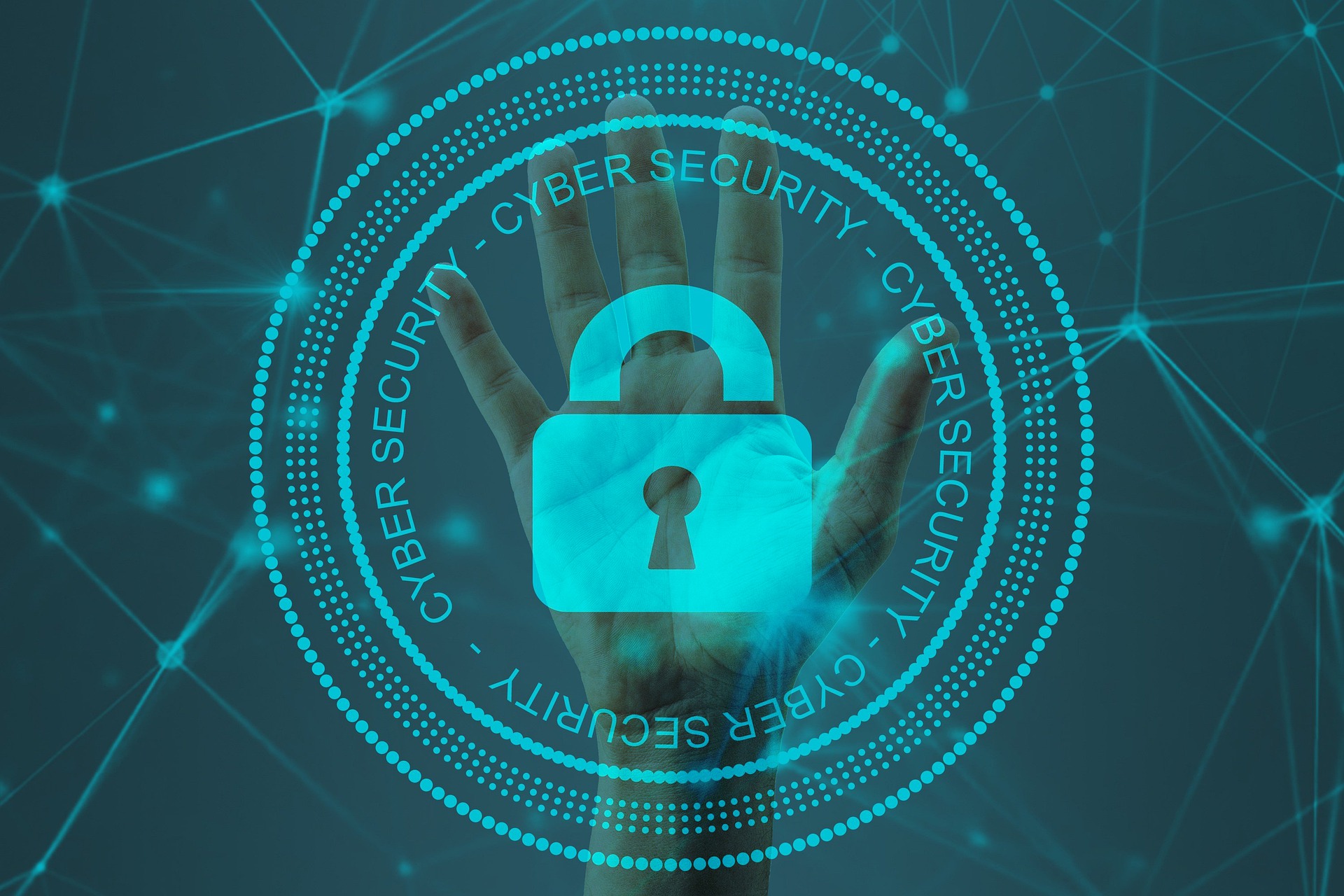

Cybersecurity


What is Cybersecurity
When you hear about cybersecurity, your first thought depends on what kind of person you are. Do you care about your internet privacy and digital print? Or do you dismiss the idea as paranoid and unnecessary? If you are the latter, then we are here to change your mind.
Cybersecurity is the utmost protection of your digital print and online activities. From files, passwords, emails, sensitive data and, confidential information, cybersecurity acts as a line of defense against various cyber threats. Whether you work in a large corporation or you are a separate individual, cyber security, in our modern times, is a must.
The threats are many, and they are constantly evolving and becoming more malicious and tricky, and so, to fight cyber threats, you need to arm yourself with proper cybersecurity. Cybersecurity does not stop with fighting malware, viruses, or hackers. It also includes file recovery, breach prevention, and managing cyber disasters.
There are different types of cybersecurity threats that latch themselves onto your vulnerabilities. They weaken your cyber defenses and lead to corrupt files, lost data, and even financial loss.
Curious? Read on to find out more
There are many kinds of cybersecurity and you can find out more about them down below. Interested? Let’s continue.
TYPES OF CYBERSECURITY
It is essential to recognize the severity of cyber threats in the cyber world. With cybersecurity, you protect the integrity and confidentiality of not only your private information but your clients and your loved ones. Algorithms can easily analyze your data and track your information to the point where they can know what your mother uses to brush her teeth! To stop this vicious cycle of constant tracking and monitoring, you need some measures in place. There are different types of cybersecurity and these depend on what sort of security you are looking for. These cybersecurity measures protect our society as a whole.
So, let’s discuss


- Critical Infrastructure
When talking about infrastructure, we talk about the foundation on which we base our businesses. Without a foundation, everything crumbles. Critical infrastructure includes physical systems like the electricity grid, traffic lights, hospitals, and water privation systems. Imagine the devastating consequences if someone were to hack the traffic lights in a large city. There is no stop to the number of deaths, pain, and destruction this would cause. It is vital to protect the basis of our cybersecurity to ensure that everything is working. This happens when organizations make sure that they don’t miss any blind spots in their security. A contingency plan in case of criminal activity is of utmost importance. This plan is the first line of defense in case any cybercriminal gets through.
- Cloud Security
Cloud security moves us from hardware infrastructural security to software-based security. This type of cybersecurity is controversial because of the cloud data breaches that companies experience. However, this is due to the sudden move of data to the cloud because of covid-19. This move was instant and in large amounts, which sacrificed some of the security for sake of availability and accessibility to information. 92% of businesses currently use the cloud to store their information and 79% of these companies have experienced some sort of data breach. These numbers are large and cloud security has since faced backlash. However, there are ways to ensure that cloud security remains a good way to maintain your privacy. These ways include anti-virus software, PAM solutions, MFA, and CASBs.
Privileged Access Management (PAM) is a solution that helps businesses govern user access. This means that these businesses can assign privileges and what a user can or can’t do once they log in. This provides a stable layer of protection.
Multi-factor Authentication (MFA) is a technology that requires the use of several authentication methods to log you in. In simpler terms, this technology has several walls between the hacker and your private info. You can use passwords, pins, your phone number, an application or, even your fingerprints to authenticate your identity.
Cloud Access Security Brokers (CASBs) act as a line of defense between your cloud system and the cloud user. CASBs monitor all the activity going on in that cloud, ensure that security measures are in check, and use their measures by encrypting and securing data.
- Application Security
Another type of cybersecurity is application security. This type of cybersecurity protects applications from invasions through networks. This is especially applicable during the development stages of an app where vulnerabilities are everywhere. Application security includes firewalls that protect against cyberthreats and hacks, anti-virus programs that act as another defense against viruses and malicious entities, and also encryption. Encryption of data is indispensable when dealing with applications because users will put their information in your application and it is your duty to protect it.
- Network Security
Network security dives deeper into internal cybersecurity issues. This means that attacks can sometimes come from internal sources and weaknesses. To prevent this, you need to secure your network. Networks surround themselves with a variety of walls and arm themselves with procedures that ensure the security of the information they are responsible for. Securing networks is not only essential but is crucial to protect users from cyber invasions. Network security includes resetting passwords, requiring authentications, encryptions, firewalls, and anti-virus programs.
- Internet of Things (IoT)
This is a more physical line of defense against cybercriminals. It is something that you can physically apply. From security cameras to routers, printers, and sensors, these applications put your cybersecurity at stake as well. This is due to the vulnerable state that they arrive in; they don’t have security measures in place and hence, it is the user’s responsibility to add these protocols.


Why Do Businesses Need Cybersecurity?
Other than the obvious devastating financial loss that businesses could face when they are breached, they should also keep in mind that their reputation will dwindle and suffer. If you become known that you are a business that doesn’t enforce cybersecurity measures, you become a pariah. Do you want to risk your entire life’s work because of some easily-applied measures that you can use? Cybersecurity is essential in our modern times simply because cybercrime is not going away anytime soon. Cybersecurity does not stop at implementing security measures but also educating and training employees. Trained employees make things easier because they know not to fall into traps, malware, or phishing links. This also saves the corporation money because of the lawsuits that occur when privacy is lost.
Enforcing cybersecurity seminars and talks in the workplace would help keep your employees well-aware of all the threats around them. This saves you money and the effort of rebuilding your reputation from the ground.
Working in Cybersecurity
To work in cybersecurity, you need a set of special skills that allow you to detect danger and stop it. However, there are great potential earnings when working in this domain. Salaries range between $70,000 and $112,000 annually depending on your experience. These amounts of money are comfortable and tempting, but to work in cybersecurity you need to have some skills. These skills are:
- Technical Skills
These are the obvious tech skills of anyone who wants to work in cybersecurity. They range from expertise in Windows, Linux, and various platforms to solid certifications in programming languages, Java, scripting languages, and virtualization software.
- Soft Skills
Soft skills are the ability to communicate your complex and technical thoughts to people who aren’t working in cybersecurity. To make people understand the importance of cybersecurity, you need to know how to explain it. Soft skills include excellent communication skills and active listening.
- Implementation Skills
This is the most important skill because it combines your technical and soft skills into one. This means that to apply your skills, you need to know how to do so. Someone might know how to code but might not know where to use or apply that information. The same goes for your soft skills because your communication might not work in certain situations. There needs to be management skills and the ability to handle stress and threatening situations.
In Conclusion…
There are no limits to cyberthreats that can disrupt and even ruin lives. You might wake up one day to the entire world in chaos because someone didn’t protect the infrastructure of a city or an organization. There are countless lives at stake when it comes to physical being and financial matters. Therefore, cybersecurity is one of the most important things that one can implement and use in our modern times. Make sure to always apply these skills and work on developing your skills, because hackers are working on theirs.


Roger
Very nice article